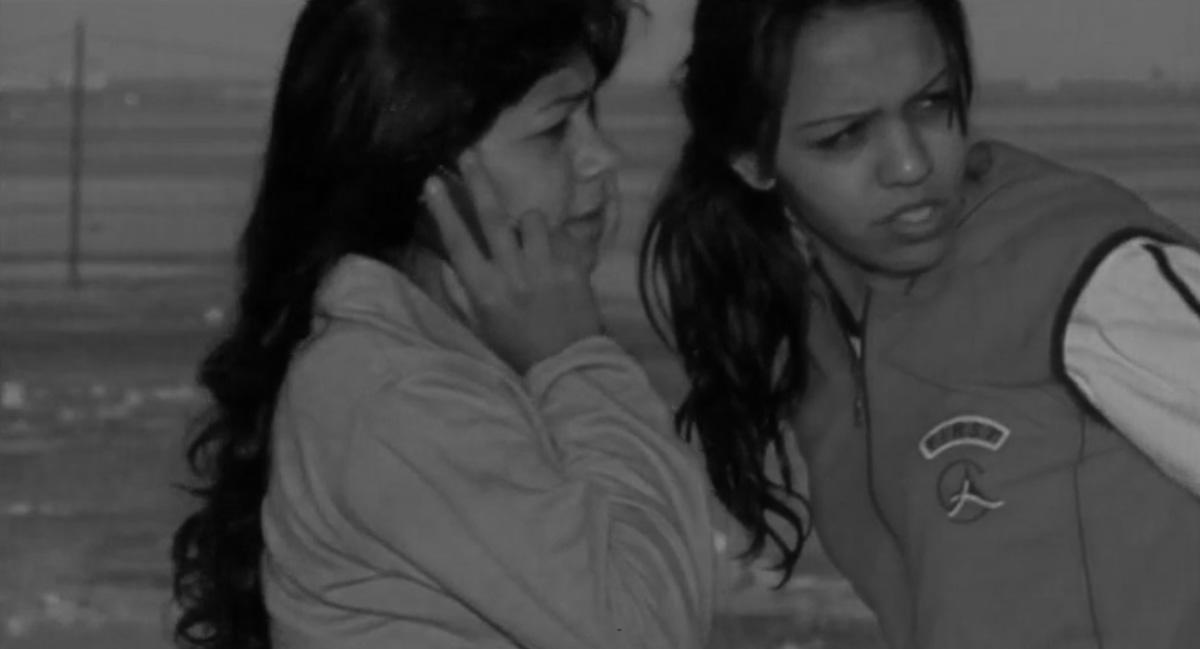
As a researcher and teacher of Arab and Iranian cinemas, I am interested in the economics of these cinemas in the context of the global film audiences they attract. Palestinian filmmakers are gaining exposure at major film festivals, not only through the selection of their films, but also in their increasing participation in the events that occur on the margins of these festivals — training programs for young filmmakers, co-production seminars and other institutional programs for developing film projects. At the Cannes Film Festival in May 2006 and in Ramallah over the summer, I interviewed some upcoming and established Palestinian filmmakers about where they see Palestinian cinema going, how the increased attention from international film institutions affects their work and how this international interest complicates the question of what defines “Palestinian cinema.”
Rashid Masharawi’s most recent feature film is Waiting. Originally from Gaza, Masharawi now resides in France, having been exiled from his Ramallah home by Israeli occupation authorities in 2002. His filmography includes Ticket to Jerusalem, Curfew, Haifa and many others, both fictional and documentary. He has been the recipient of several awards from major international festivals.
Kamran Rastegar: Tell me about your beginnings in filmmaking.
Rashid Masharawi: I made the first Palestinian short fiction film under the Israeli occupation. Nobody was thinking about cinema then. We were not allowed to make films — this was before the first Intifada. That was the law, under the Israeli military law. I got equipment from friends, Palestinians and Israelis, from Nazareth and Haifa, and I had a Palestinian friend from Beersheba, who was a Palestinian working in Israel. I put all of the production in his name because he had an Israeli passport. And another German friend, a cameraman — we pretended sometimes that it was his film, not my film. I was the director, but I was not supposed to be there, on location. So I was going secretly, and I knew that if they caught me I would be arrested. But so what? This was how I made my first two short 16-mm films. I made them by using different names, different identities, until the film was finished.
KR: How many times have you been to Cannes, and how was it this time? Are things changing, in your experience as a Palestinian filmmaker?
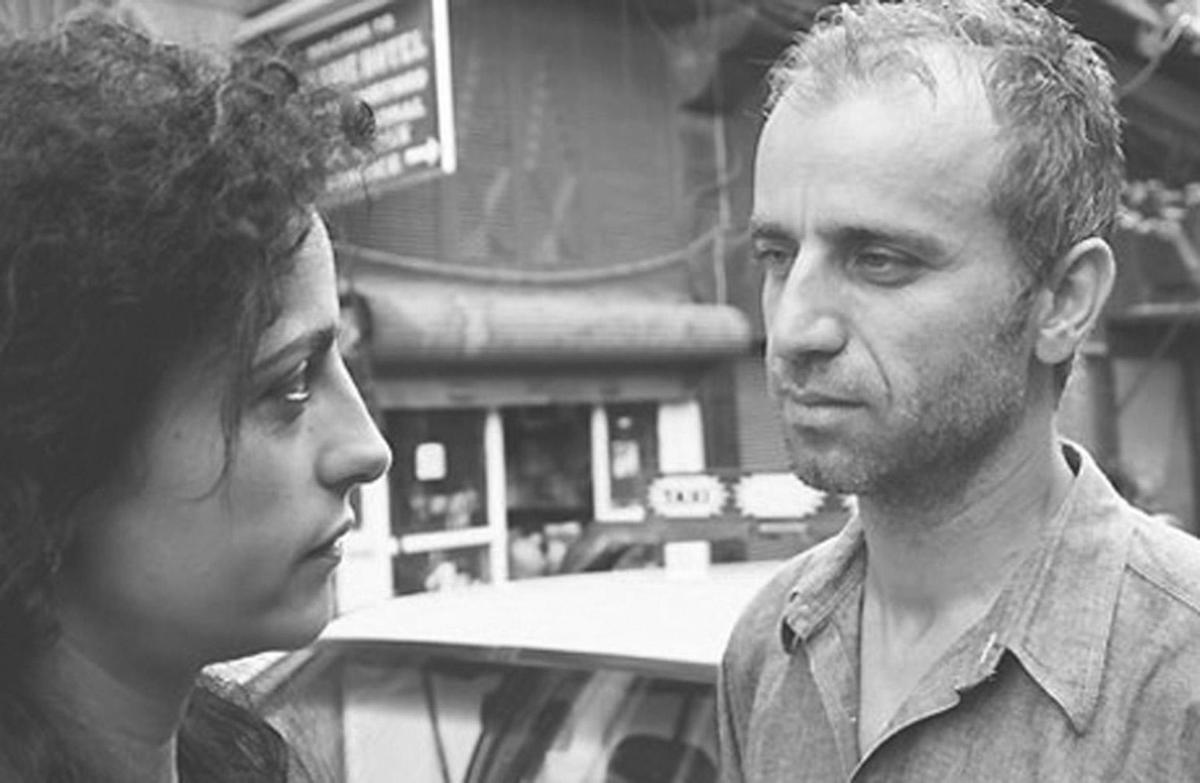
RM: I’ve been to Cannes five or six times, two times with films. When I was here in ‘96 with Haifa in the Un Certain Regard section of the festival, it was the first time they added the Palestinian flag to the flags on the promenade — it was after Oslo. Since then, Michel Khleife, Hany Abu Assad and Elia Suleiman have had films here, and this year Elia’s on the jury. I did a lot of work talking to people to make them understand that there are Palestinian films, that it’s art like any art, like any cinema. Now, that’s been achieved.
So I’m less worried about having to promote Palestinian cinema and can promote my own projects. My dream for Palestinian cinema goes back to 1995, when I decided we need two things: to see films and to produce films. As you know,we don’t have cinemas — only the Kasaba Cinematheque in Ramallah. And no institutions. So the first thing I did was establish the Cinema Production Center, in Ramallah, a non-governmental organization. And I made a mobile cinema, showing films around Gaza, West Bank, Jerusalem, and once a year, I had a film festival for kids. We were showing films in schools, refugee camps, cultural centers. I started to arrange small funds for Palestinian filmmakers from inside Palestine, to support Palestinian cinema and to make other people used to the idea of supporting our cinema. All my plans to establish this Palestinian cinema base collapsed slowly after 2000 [the beginning of the second Intifada]. The mobile cinema had difficulties moving from place to place,productions became risky, and since mid-2002 the Israelis haven’t allowed me to return to Ramallah, to my home and the Cinema Production Center,and so slowly, slowly it’s been frozen. But I am happy with what we did, because many of those young Palestinian filmmakers are at film festivals, producing their own films, making their own contacts, and Palestinian cinema is coming along.
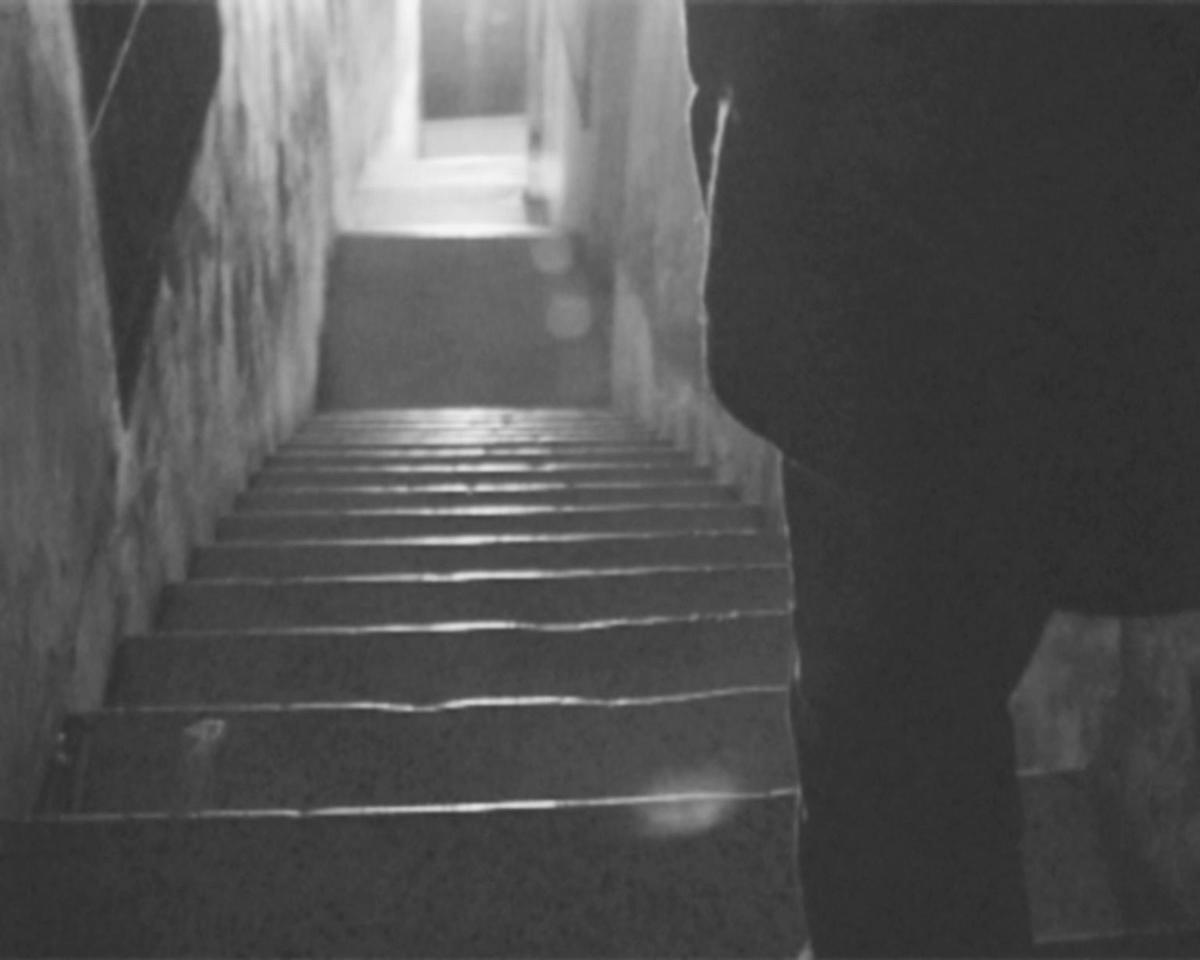
KR: So is “Palestinian cinema” a reality now?
RM: I think what makes “Palestinian cinema” exist is individual filmmakers. It’s independent filmmakers who make auteur films. Their relationship to cinema keeps this project alive, the Palestinian cinema. I’ll tell you, my struggle is to make a film as a Palestinian film, and have it distributed in the world like any other film. I want the film to be discussed in cinematic contexts, outside of the frame of Palestine. I really feel good about the last two years. I feel there is a group of Palestinian men and women filmmakers who are really starting to think of cinema as media, as an image, as an art.
Palestine is not a country; it’s not even autonomous. Palestine is only a “situation”: in the same day, you can wake up in the morning in a state, in the day it’s a war, by the evening it’s an Intifada, and the day after it’s autonomous again. And you have, at the same time, a president, ministers, and over your head the helicopter of the Israelis, and the checkpoints, and the settlers, and, and… It’s getting worse now, it’s getting much worse. Most of my friends have not been paid for the last three or four months. In Gaza they are trying to find ways to deliver food to the people. So, Palestine only exists in the cinema. Palestine, in the cinema, has history, it is a beautiful country in the Mediterranean. It has Jaffa, it has Haifa. Cinema is also memory. Palestine in the cinema is not only a political situation. It’s a people with culture, language, art, with negative and positive sides. We exist in cinema as a nation. As a nation like any other nation. The filmmakers have managed to put this idea into the world, while politicians failed to, or haven’t done so until now. Even if we make non-political cinema, it will have a major political result, because what do we want? We only want to be like others. In the cinema, that can happen.
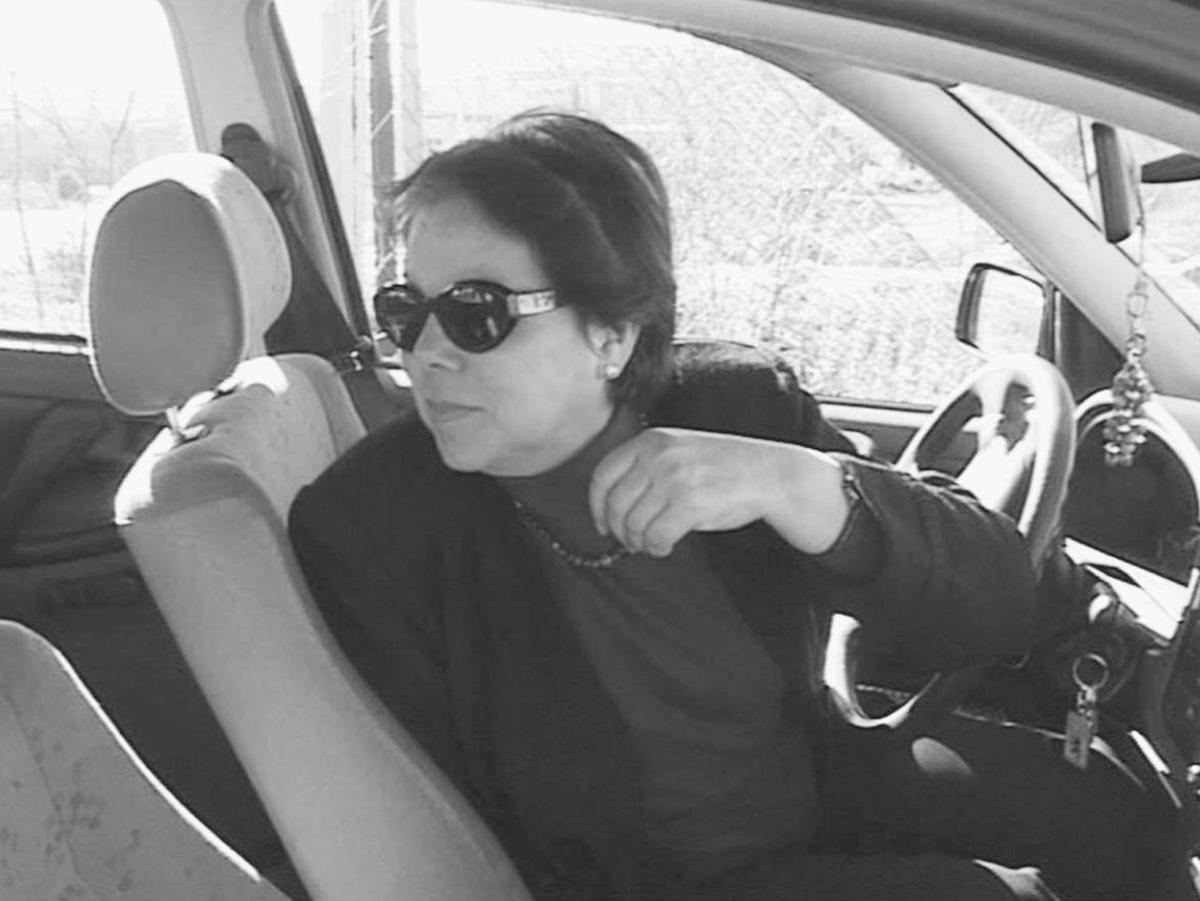
Buthina Canaan Khoury is a Palestinian filmmaker based in the West Bank village of Taybeh. Her latest work is the feature documentary Women in Struggle.
Kamran Rastegar: What is the benefit of coming to international festivals, for you as a Palestinian filmmaker?
Buthina Canaan Khoury: I have met people I would never be able to meet in Palestine — for example, Syrians and Lebanese,who cannot come to Palestine.And we in Palestine have to come out in order to meet other Palestinian colleagues, as even in Gaza you can’t meet them in Palestine because there is no access between Gaza and the West Bank.
KR: Does that mean that Palestinian cinema in a sense exists at least partly outside of Palestine?
BCK: Well, Palestine is not a unified country — yet. As you know, there are Palestinians who live in Israel, Palestinians who live in Gaza, Palestinians who live in the West Bank, and each of those can’t communicate easily with each other. So the best thing is for us to leave Palestine in order to interact with each other and to get to know each other’s work.
KR: But do you think there’s also a negative consequence of that, in the limitations that come from producing cinema that has to look outside of Palestine for spaces to exist for Palestinian filmmakers to meet, not to mention for funding, and so on?
BCK: Of course there are limitations. Once you don’t find the money in Palestine, and you can’t find it in the Arab world, you right away look to Europe, because that is the only place where you can find funds. In that sense, there are all sorts of conditions — it’s not easy to get that money. And as independent filmmakers, we’re always faced with what is called“being balanced”; making films to do with both Palestinian and Israeli issues. My previous film, Women in Struggle, had to do with Palestinian women ex-detainees. And I had a very, very, very tough time raising money for this topic because I was constantly facing the issue that “it has to be well-balanced,” and how can I find Israeli women who are exdetainees? [Laughs] Because they don’t exist! Why can’t we talk about our own issues, our own problems, without linking to the Israeli view?
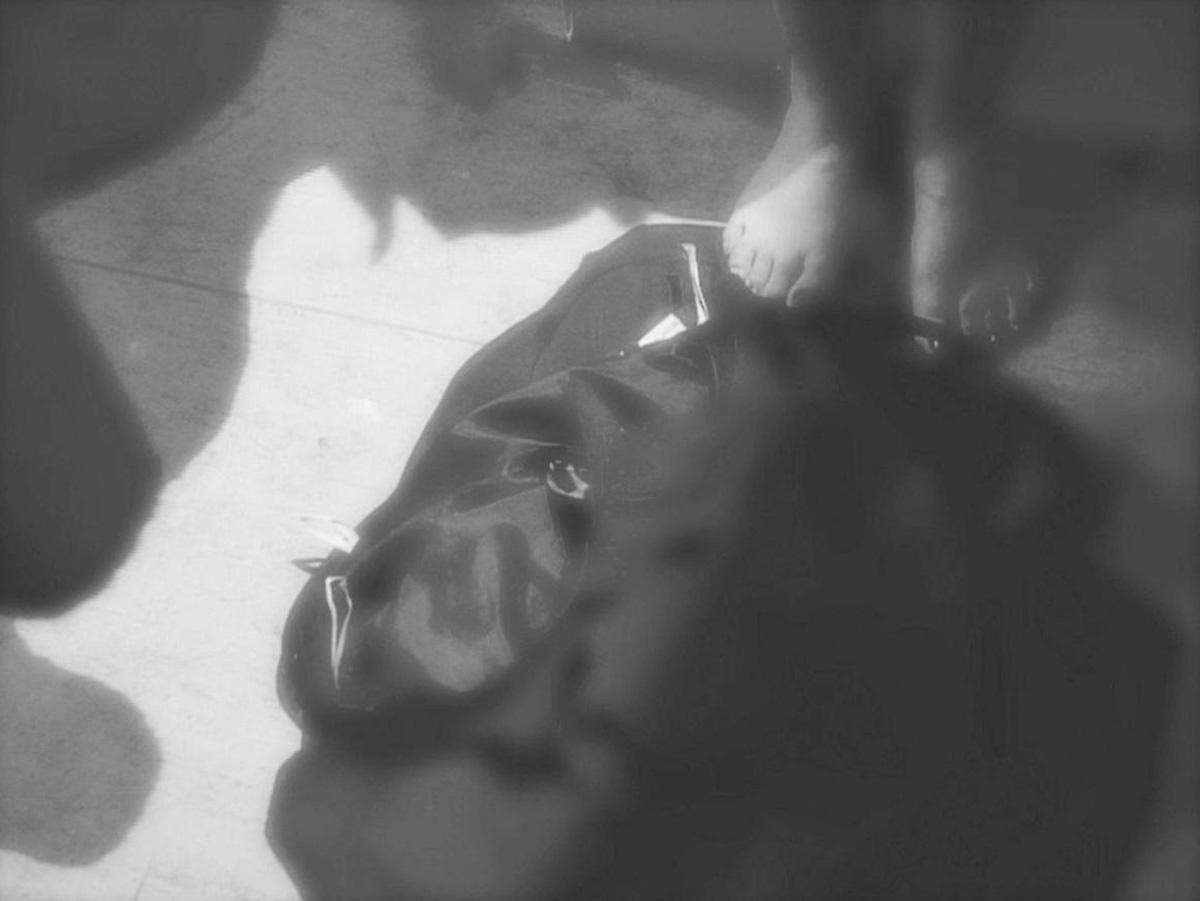
Nahed Awwad is a Ramallah-based filmmaker. Her previous films include Going for a Ride?, The Fourth Room and 25 km, which was the recipient of the New Horizons award in the Al-Jazeera International Documentary Film Festival. She is working on a new feature-length documentary.
Kamran Rastegar: You’ve made four films to date — how have you made them?
Nahed Awwad: The first two films I made on my own, using a borrowed camera from a friend and using editing software on my own computer. The third film I made through my school — in 2003 I studied at the European Film College in Denmark — using the school’s facilities. My latest film was made through a Swiss-funded production workshop. And I’m working now on another film with a French producer.
KR: So, from a borrowed camera and home computer to now working with European funded projects and European producers, I’m curious if you feel entering into this new area and working through European institutions has forced you to compromise at all, or if there have been any limitations put on you?
NA: Well, I personally would not allow that to happen. I’ve been lucky to meet people who share my ideas. As Palestinian filmmakers, we do largely make films for the outside. We want them to really know what’s happening, and to do so we need to use their own language, but without compromising. But for sure, many Europeans look for a certain thing,they want certain stories. This is a restriction because other stories may not get through. I think maybe we need to work for an alternative, like a Mediterranean film market. Even feature films can be made independently — many are even made in Europe without much money. So we should take advantage of this, maybe look for alternatives.
Hazim Bitar is a Palestinian-Jordanian filmmaker, based in Amman. He has directed many documentaries, including Jerusalem’s High Cost of Living, Overdose and Growing up in Amman’s Suburbia, and is a founder of the Amman Filmmakers’ Cooperative.
Kamran Rastegar: What is the relation of Jordanian filmmakers to the question of Palestine?
Hazim Bitar: After our first two years at the AFC, we managed to establish some kind of presence for what I call “Jo-Pal cinema.” Given that a majority of Jordan’s population are people with either Palestinian or Jordanian-Palestinian roots, not to mention the general concern with Palestinian issues — the occupation, human rights — Jordanian filmmakers by and large have been heavily influenced by developments in the occupied territories, and as such have responded to the needs of their Palestinian compatriots,at least in the realm of filmmaking. So most of the filmmakers in Jordan,regardless of their background, have at least at one point produced a short or long drama or fiction addressing the issue of the occupation. So Jo-Pal cinema today is a de facto movement, it is the fusion of the Jordanian and Palestinian perspectives, and it’s here to stay. It’s because the Jordanian culture by and large is totally inseparable from Palestinian experience, and vice-versa. Our primary market, if we can use that term, has actually been the European audience. Even though the western audience is forgiving and flexible, they do expect that we reciprocate by not continuing to produce simplistic films, but to produce films that portray the complexity of the situation, that go deeper, beyond the simple story of the victim. I hope that the next generation of both Palestinian and Jo-Pal filmmakers will be able to live up to those expectations.
Annemarie Jacir is a filmmaker based in Ramallah. She has directed or co-directed several short films including Like Twenty Impossibles, Quelques Miettes Pour Les Oiseaux and An Explanation: (and then burn the ashes). She is in production on a feature fictional film.
Kamran Rastegar: What kinds of limitations or expectations do you find when looking for funds outside of Palestine?
Annemarie Jacir: What European funders and producers are looking for in Palestinian cinema is an Israeli partner or coproducer, so that they feel safe. There are several incredibly talented Palestinians with Israeli citizenship who have been doing well — Elia Suleiman, Hany Abu Assad, Tawfiq Abu Wael, to name a few. Given Israeli discrimination, it’s amazing they’re making better films than most Israeli Jewish filmmakers. It’s similar to the Palestinian writers inside Israel in the sixties, who managed to create amazing works, like Mahmoud Darwish, Emile Habibi, and Tawfiq Zayyad. But it has to be said that as Israelis they do have access to both Israeli and also European opportunities, both to study cinema and to access funds for production. This access is much more than anything that West Bank or Gaza Palestinians have. With the exception of Rashid Masharawi, I don’t know of a single West Banker or Gazan who has been able to get out there and make a feature film.
As I have been fundraising for four years for my current production, Europeans I meet to discuss the production with constantly ask me why I don’t have an Israeli partner. They see us as a package deal — they can’t possibly conceive of Palestinian filmmakers as just being Palestinians and having nothing to do with a colonial entity called Israel. So there are limitations on us, in terms of the content as well. There’s a propensity of interest in supporting Palestinian cinema that implicitly promotes an idea that people in the West Bank and Gaza are “Palestinians” and they are under occupation, and those Palestinians in Israel are“Israeli Arabs,”and they have patriarchal and social problems. Essentially, filmmakers are encouraged to deal with the occupation only if it’s in the West Bank and Gaza and the 1967 borders, in a sense pushing the two-state solution as the backdrop to any cinema. But try to talk about 1948, the nakba, the right of return, and they don’t want to touch you. Stories that take place within the 1948 borders, historic Palestine, are supported if they are sweet, rural stories about loveable villagers and their social problems — stories that are palatable to Israelis and Americans.
What I think is interesting is that Palestinian cinema has gotten a lot of attention in recent years. Cinemaphiles know Palestinian cinema — they know about Elia Suleiman and Hany Abu Assad. There are many others, but those guys deserve credit for what they’ve done. But what I don’t understand is that Palestinian filmmakers are still stuck in a hole. We actually aren’t getting much support, we don’t get much funding, and who is actually telling our stories, who is telling the Palestinian story when you go to festivals and see all the films that are being shown? Israelis. Israeli filmmakers are getting funds, getting attention for telling our stories. This is what I don’t understand.
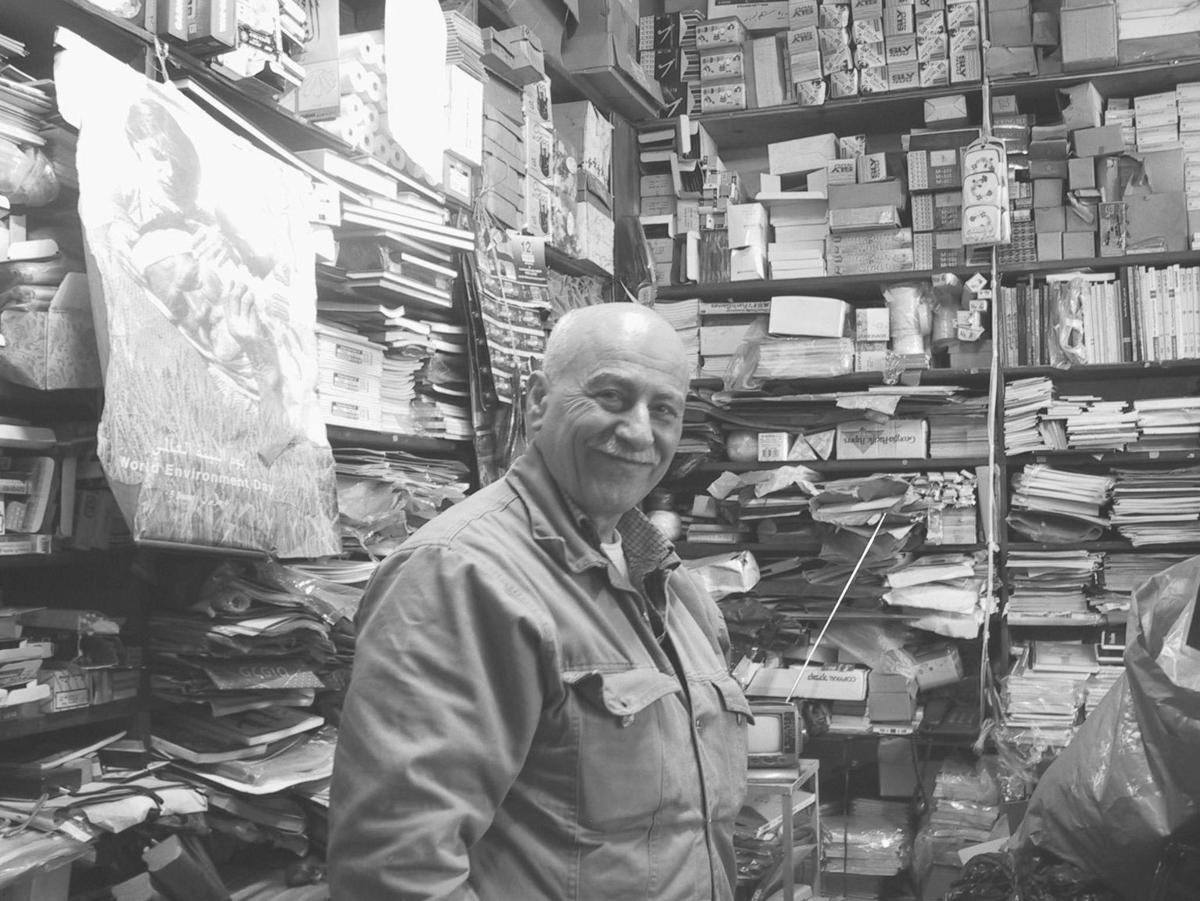
KR: So you’d prefer that Israelis don’t make films about Palestinians?
AJ: It’s a well-known fact that Palestinians have been fighting against invisibility for decades. Our artists have been killed, our intellectuals have been killed,our books are prevented from being published. And now, intentionally or not, a new generation of Israeli filmmakers is participating in that, in an erasure of Palestinian voices. Leftist Israelis are becoming superstars on the festival circuit, with films about the wall, about the occupation, about checkpoints, about prisoners. They can take advantage of both European funds and “third world” funds, and also have access that Palestinians don’t — they travel the country freely, enter areas we cannot, visit families in other towns when it’s illegal for us to, get permission we cannot obtain. There’s something colonialist about that. This tiny number of filmmakers also gives an impression outside that there’s a real, viable, leftist Israeli movement. If I were cynical, I’d say it’s a really good way for an Israeli filmmaker to start a career, to make a film that’s a little critical of the occupation. You get funding, you get invited to festivals, you travel the circuit, you get a lot of attention. Because everyone knows that Europeans aren’t going to screen pro-apartheid,right-wing Israeli films. Those films are screened in Israel for Israelis. To get out of the ghetto that Israelis have created for themselves, that’s what an Israeli filmmaker has to do.
Ahmad Habash is based in Ramallah and has directed the fiction film The Moon Sinking and many short animated films, including A Life’s Wish and Coming Back.
Kamran Rastegar: How is it being a Palestinian filmmaker — an animator, at that — based in Ramallah?
Ahmad Habash: Here the situation is very particular, in Palestine. There are always problems, drama, stories, events, scenes. So in some places you go and say, “I’m Palestinian,” and people say, “Ooh, come here, how is it to be a Palestinian, do you have a film?” and so on. Another issue is that my [Palestinian] passport doesn’t allow me to travel very much. It doesn’t give me freedom to be able to come and go. I have a West Bank ID, I can’t travel to Jerusalem, I can’t go to 48 [Israel]. I can’t work on an international film; I can only work if the film is produced entirely here in the West Bank. It’s a major problem in this country. Even if a production is to be shot fully on the West Bank, often the producers will favor someone who carries a Jerusalem ID. Or, one from 48.
KR: So what do you think Palestinian cinema is?
AH: When I watch European films, it strikes me how, since they work freely, they can make films about daily dramas, about normal life. When we make films, the occupation always has to be present, either in a very apparent way or even indirectly. But here, sometimes life can be normal. For the people in Gaza, okay, it’s really bad, I know… but if you look at what’s happening in Sudan, and at least we’re still alive!
Sometimes animators here [in the West Bank/Palestine] get together, but there isn’t a movement here as with cinema. Even if I have good contacts outside, I still have one problem, which is that when I go to look for funds, I feel that since I’m a Palestinian, sometimes the reaction is… um, not as if I’m begging, but…
KR: As if they’re giving you charity?
AH:Yes, as if they’re giving money not because you are skilled or have a good idea, but because they think, “You don’t have anything, miskeen [you poor thing]!” That’s a problem. I want my work to succeed because it has value, because it’s good.